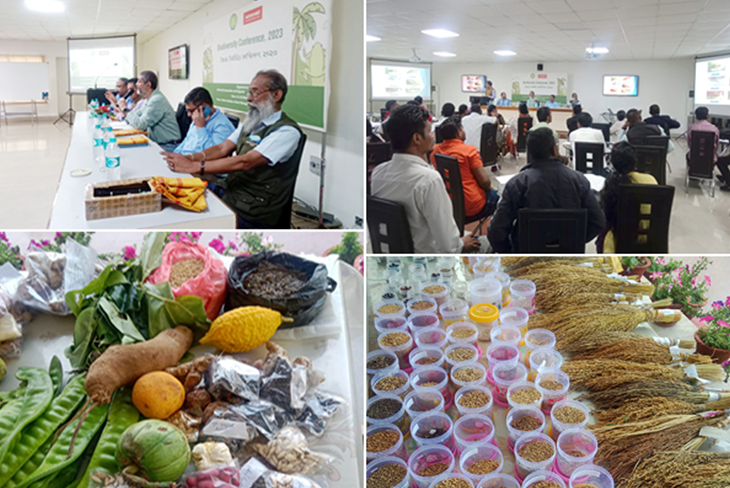The North-Eastern region of India forms a part of the Indo-Burma biodiversity hotspot which is amongst the very few globally identified hotspots in the world. In light of the shrinking biodiversity in the region, ActionAid Association organised a two-day Biodiversity Conference on March 25-26, 2023, in Guwahati, Assam, with the Department of Botany, Gauhati University. The conference was designed to discuss how the shrinking biodiversity adversely impacts farmers, jhumias (tribals who practise shifting cultivation), fisherfolk, pastoralists and other vulnerable communities in the region whose lives and livelihoods are woven into the fabric of ecosystems.
The meeting began with a keynote address by well-known environmentalist Leo F. Saldanha. Elaborating on how biodiversity is in crisis today, Leo shared that “75% of terrestrial environment is ‘severely altered’ to date by human actions.” He also spoke about how a small number of people control a large portion of the natural resources. “Biodiversity belongs to everybody,” Leo said, adding that “nobody owns it or has exclusive rights over it”. A panel discussion followed reflecting on the status of biodiversity, covering the declining aquatic, floral and forest biodiversity. A strong need was expressed to keep a check on the infrastructural development being planned in the region to arrest the siltation on the Brahmaputra riverbed. Furthermore, an urgent need to identify and protect the endangered species of flora and fauna was felt to conserve botanical and forest biodiversity and promote related sustainable livelihoods.
During the next panel on ‘Climate Challenge and Biodiversity in the Region’, evidence of climate change hitting the country’s North-Eastern region was shared: the changing rainfall patterns leading to flash floods and landslides; the unfolding water crisis; and the challenges posed by the changing climate on traditional agricultural practices, including Jhum (shifting cultivation). The concluding panel discussion was on ‘Fragile Livelihoods and the Future of Communities’. Panellists discussed the impact of the current development paradigm on climate and biodiversity. They also delved into the linkages and contradictions between conservation agenda and livelihoods. Finally, the emerging challenges for traditional livelihoods in the region were also discussed in depth.
As part of this conference, an exhibition of samples representing the biodiversity of the North-Eastern region was also organised. Participants unanimously stressed the need for urgent measures to repair the situation and collectively act for social and ecological justice.
On a related note, Sandeep Chachra, Executive Director, ActionAid Association, during a recent interview with Enviro Annotations, spoke about how ActionAid Association looks at the issue of climate change from a ‘justice’ lens and “focuses on ensuring justice to those already suffering inequalities, vulnerabilities and ensure the participation and engagement of affected or vulnerable communities”. Read the entire interview here.

